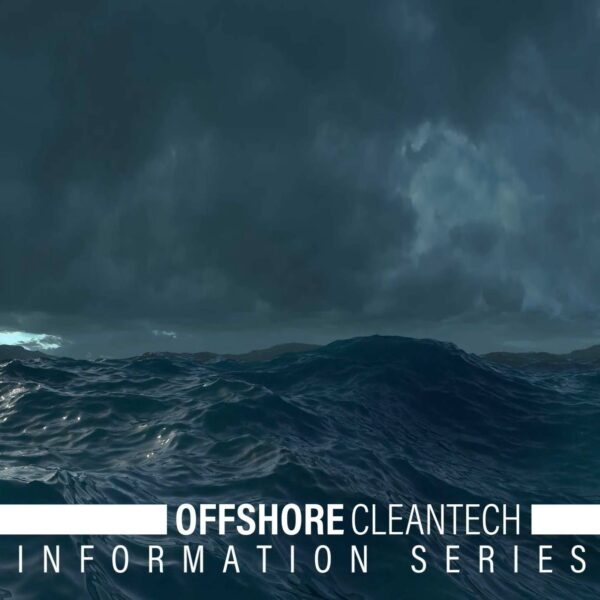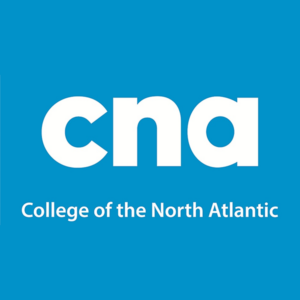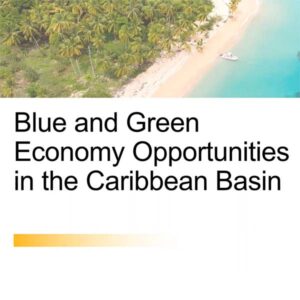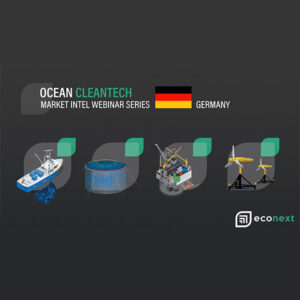Offshore Cleantech Information Series
$0.00
In this series of 16 presentations, you will learn about the applications of clean technologies in the blue economy, where in the world leading edge innovation is taking place, and about Atlantic Canadian firms that are taking their products and services globally.

Conversations around concepts like sustainable development, energy transition, net zero, decarbonization, etc. are intensifying globally at a rapid rate. Atlantic Canada’s oceans industries – which are vitally important to the region’s economy – operate in international markets and as such need to be prepared to thrive in a world where investments and decisions are increasingly being made based on environmental performance indicators.
What does this mean for Atlantic Canada’s blue economy? What are the challenges that we face in ensuring that we remain competitive into the long term? What are the local opportunities for the development and application of clean technologies? Where in the world is the leading research, development, and innovation taking place? What businesses based in Atlantic Canada are already on the forefront and exporting their products and services worldwide?
The Newfoundland and Labrador Environmental Industry Association (NEIA) , the Newfoundland and Labrador Offshore Industries Association (Noia) , Marine Renewables Canada, and the Maritimes Energy Association bring to you a series of 16 presentations that explore these questions and focus in on areas of particular interest for the region. The following topics are covered in over 10 hours of content presented by subject matter experts from Atlantic Canada:
Module 1
Cleantech in offshore industries – what it means, latest trends, and opportunities
With conversations around concepts like decarbonization, energy transition, net zero, etc. intensifying on a global scale, what does this mean for Atlantic Canada’s blue economy? NEIA’s Executive Director Kieran Hanley explores the challenges and opportunities industry will face and sets the stage for the rest of the information series presentations.
Module 2
Net zero, emissions reduction challenges in offshore industries, and emerging solutions
The reduction of greenhouse gasses within Atlantic Canada’s offshore oil and gas industry presents significant challenges but interesting economic growth and innovation opportunities. Derek Sullivan, President of Atlantic HSE Energy Consulting Inc. and Caron Hawco, President of the Caron Hawco Group, outline what these challenges are and what technologies are being applied in response.
Module 3
Non-GHG environmental challenges in offshore industries and emerging solutions
While the environmental performance of the offshore oil and gas industry is increasingly linked in public discourse to greenhouse gas emissions, Derek Sullivan, President of Atlantic HSE Energy Consulting Inc. and Caron Hawco, President of the Caron Hawco Group, outline other challenges that the industry faces and what innovations are taking place to address them.
Module 4
Advances in offshore carbon capture and storage
Carbon capture and storage (CCS) is increasingly being viewed as a technology that will vital in the fight against climate change. In the Atlantic Canadian context, CCS represents a significant opportunity to assist in the reduction of greenhouse gas emissions emanating from its offshore oil and gas industry. Dr. Lesley James, Associate Professor with Memorial University, introduces the concept of CCS and explores its potential local application.
Module 5
Electrification in offshore industries – trends and opportunities
A major contributor to greenhouse gas emissions from offshore operations comes from the energy required to power them. Curtis Whelan, Development Engineer with Growler Energy, takes a deeper dive into the provision of power-from-shore for offshore operations as an approach to emissions reductions – including where in the world this is taking place and some of the unique challenges for application in the Atlantic Canadian context.
Module 6
Offshore wind energy alongside oil and gas industry developments
Another approach to electrifying offshore operations is through the provision of renewable energy in-situ. One emerging solution is the development of offshore wind energy assets to provide the needed electricity for operations. Pete Whelan, VP – Project Execution with Growler Energy, explores this concept and highlights a current project where this is being implemented.
Module 7
Highlighting firms from Atlantic Canada engaged in the international offshore wind industry
While there are no active offshore wind development projects in Atlantic Canada, there are a number of firms from the region that are providing solutions to this rapidly expanding global industry. Catherine Warren from Saltwater Strategies tells the story of a handful of these firms that are applying their oceans expertise to this ‘new’ industry and have finding success worldwide.
Module 8
Marine renewable energy
Offshore wind is just one form of marine renewable energy – a much broader sector which includes tidal, wave, and other technologies. Atlantic Canada, surrounded by the ocean, has the opportunity to become a world leader in the development of hydrokinetic resources. Elisa Obermann, the CEO of Marine Renewables Canada, highlights the innovative activity taking place in the region and how firms are playing on the global stage.
Module 9
Port electrification – the role that ports can play in enabling a green (and blue) economy
So many of Atlantic Canada’s industries rely on port infrastructure for their operations. This includes many land-based industries that require the shipment of goods (inputs or outputs) overseas. Thus, marine ports play an integral role in the environmental performance of the region at-large. Bassem Eid, President and CEO of BEHI, explains how port electrification can simultaneously enable emissions reductions within multiple industries.
Module 10
Digitalization, integrated operations, and the relationship to improved environmental outcomes
Just as energy efficiency within your home yields environmental and economic benefits, the optimization of processes in the offshore can translate to better outcomes on a larger scale. Mark Cumby, the Regional Director of Energy in Eastern North America for Hatch, introduces the concepts of digitalization and integrated operations, and makes the important connection between innovation in these areas and the opportunity for improved environmental performance.
Module 11
Emerging technologies in environmental characterization and monitoring
Atlantic Canada is home to an emerging cluster of expertise around the sensing, characterization, and monitoring of the ocean environment. Innovators are using everything from radar, sonar, and lasers to satellites to better understand how we are impacting the environment, and how it is impacting us. Freeman Ralph, Vice-President of Oil and Gas and Energy Solutions with C-CORE, gives a crash course on the technologies that are being developed and deployed.
Module 12
Clean technology within Atlantic Canada’s aquaculture and fishing industries
The fishery has been a vital component of Atlantic Canada’s economy for a long time, and aquaculture is increasingly becoming a major part of this story. Both industries are operating in a world where standards are rising in terms of how these products are harvested and produced. Marilyn Butland of Butland Communications explores the environmental challenges these industries are facing, and identifies areas ripe for innovation in Atlantic Canada.
Module 13
New ocean industry opportunities
This series has explored sustainable development related to Atlantic Canada’s ocean economy as it exists today – from fisheries and aquaculture, to marine transportation, to offshore oil and gas. But this is just the tip of the iceberg in the emerging ‘blue economy’. Susan Hunt, the Chief Technology Officer of Canada’s Ocean Supercluster, identifies trends that are being seen related to brand new and emerging opportunities in our oceans.
Module 14
Arctic, harsh environments, and clean technology
Atlantic Canada is a global leader in operating in arctic and harsh ocean environments, supported by world-class research institutions and a highly experienced workforce. There are significant environmental considerations when active in these circumstances and geographic areas, and Dr. Lesley James, Associate Professor with Memorial University, helps us understand the clean technologies that are being developed and deployed in support.
Module 15
European and North American FTAs & implications for Cleantech
This presentation explores the relatively new free trade agreements between Canada and European Union and within North America from the perspective of clean technology. What provisions specific to technologies and services that improve environmental performance? And how might that present opportunities for Atlantic Canadian firms? Join Allison Mackenzie, Pieter Bouwer, and Christophe Rouleau from Canada’s Trade Commissioner Service to learn more!
Module 16
European green recovery plans: implications for Canadian cleantech firms
Following the onset of the pandemic and the economic strife that followed, there has been a growing global movement to ‘build back better’ – or stimulate economies through clean growth investments that also help combat climate change. This presentation provides an overview of how plans are taking shape in the regard in Europe, and what this might mean for Atlantic Canadian firms. Join Ian Murdoch, Megan Wood, and Arndt Ulland from Canada’s Trade Commissioner Service, and Allison Saunders from the Mission of Canada to the EU to learn more!





